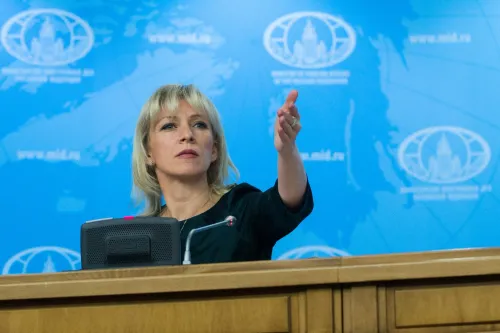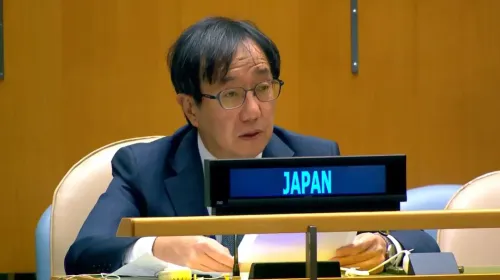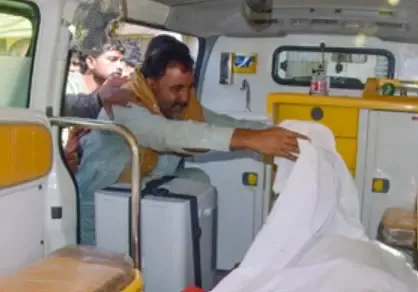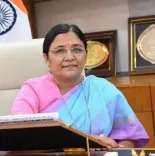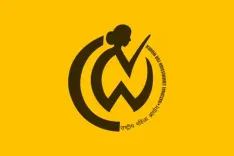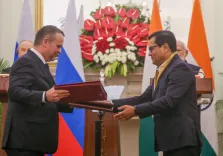What Actions Are the Quad Foreign Ministers Taking Regarding the Crisis in Myanmar?
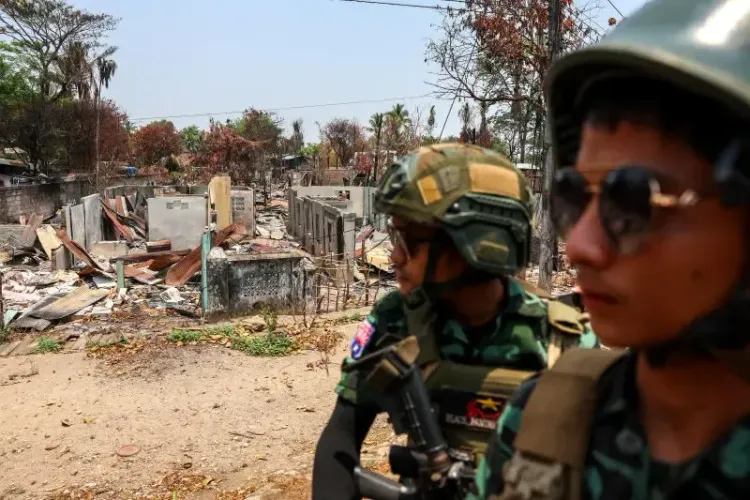
Synopsis
Key Takeaways
- Quad Foreign Ministers express deep concern over Myanmar's crisis.
- They urge the regime to uphold ceasefire commitments.
- Humanitarian needs have surged, impacting 22 million people.
- The military has intensified attacks on civilians and aid workers.
- International community calls for accountability and support for ASEAN's efforts.
Washington, July 2 (NationPress) The Quad Foreign Ministers have voiced serious concerns regarding the escalating crisis in Myanmar and its ramifications for the surrounding region. They urged the ruling regime to uphold their commitment to a ceasefire.
In a joint statement released during their meeting in Washington on Wednesday (US time), they stated, "We remain profoundly alarmed by the deteriorating situation in Myanmar and its repercussions on regional stability. We urge the regime to honor its ceasefire obligations and call upon all parties to implement, extend, and enhance ceasefire initiatives."
The ministers reiterated their robust support for ASEAN's initiatives, advocating for the comprehensive and effective execution of the Five Point Consensus to achieve an inclusive, sustainable, and peaceful resolution to the crisis.
Additionally, they emphasized the necessity for all parties to permit the safe and unrestricted distribution of humanitarian aid. They also expressed concerns about the crisis's effects on regional security and the rise of transnational crimes, committing to combat cybercrime and online scams.
Recently, during a briefing at the Human Rights Council in Geneva, UN High Commissioner for Human Rights Volker Turk depicted Myanmar as a nation engulfed in war, repression, and escalating suffering.
According to Turk, since the military coup in February 2021, nearly 6,800 civilians have perished, and over 22,000 remain unjustly detained. Humanitarian needs have surged, impacting nearly 22 million people requiring assistance, with more than 3.5 million displaced due to conflict.
"Despite immense challenges, individuals from all sectors are striving to create a peaceful, sustainable, democratic, and diverse Myanmar, rooted in human rights," Turk stated.
Following the devastating earthquake on March 28, which claimed nearly 4,000 lives and left six million in urgent need, the military intensified assaults instead of facilitating aid.
The Office of the United Nations High Commissioner for Human Rights (OHCHR) reported over 600 military strikes since the earthquake, with a staggering 94 percent occurring during supposed ceasefires. Schools, religious sites, and other protected areas have frequently been targeted.
UN Special Rapporteur on the situation in Myanmar, Tom Andrews, reiterated Turk's warnings, expressing alarm over the collapse of international humanitarian support and the military's oppressive actions.
"The junta has opted to weaponize aid. I have spoken to humanitarian workers who have been physically obstructed at checkpoints and have received reports of earthquake survivors being evicted from shelters with nowhere to turn," he informed the Council.
The military seized power in a coup on February 1, 2021, declaring the November 2020 election results invalid.
Former leader Aung San Suu Kyi has been held at an undisclosed location since February following the coup, reportedly tried in a closed court without any access for observers.


